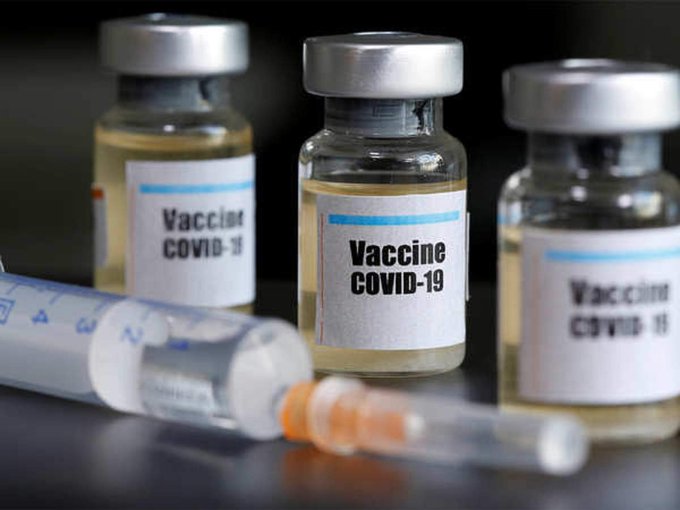There have been several debates on vaccines in recent times. The position we take here is the one which is more widely held that vaccines have an important role in public health. However in order that vaccines should fulfill this important role and make their important and useful contribution, their use must be based on rationality and scientific facts as well as acceptance of short-term and longer-term public good over narrow selfish interests. There can be wide agreement that this is an eminently reasonable position to take as a base point of the debate ie a point from where we initiate the debate.
We can also identify a certain stage in the history of vaccination when by and large this was indeed the case. Leaving aside a few unreasonable and narrow attempts here and there, on the whole reason and public interest appeared to be in control in the context of vaccination. This is how public trust in vaccines as an important means of protecting health was built up. Vaccination requirements were also of such a nature that these could be accommodated rather easily at various levels .
Then gradually the first murmurs of doubt and dissent began to appear, and we are speaking only about what was said by well-informed public health experts and researchers, in most cases backed by research papers and editorials in well-regarded journals. Firstly, there was concern that development and production of vaccines was passing more and more into the hands of big business interests, including big multinational corporations which had been known earlier for various manipulations to grab enormous profits in the context of medicines and related sectors ( including many internationally established cases of selling irrational and highly hazardous medicines). The ground for this had also been prepared by the imposition of unfair patent regimes through trade agreements. In the context of some countries a fierce debate developed over the deliberate closing or scaling down of public sector/government facilities that existed already for developing and making vaccines, so that the field was left more wide open for private business interests, multinational corporations and imports ( of technology as well as vaccines).
Secondly, allegations started appearing that some of the new vaccines being recommended for some diseases were not based on proper reasoning and scientific facts. This aspect of the debate had several sub-aspects such as whether vaccine is the right approach in the context of a particular disease, whether the disease in question is really as much of a threat as is being made out, the overall cost-benefit aspects and risks or hazards that may be associated with a particular vaccine or vaccines based on a particular line of development.
Thirdly allegations started appearing, supported by growing evidence, that preceding the appearance of such vaccines, there would be a lot of propaganda, presenting a highly exaggerated picture of how utterly devastating the disease in question can become. The predictable result was that soon there would be a lot of pressure on the government to welcome the just- arrived vaccine without asking too many questions.
Fourthly, the big companies started introducing new combinations of vaccines, in the process increasing their profits, although there were increasing questions regarding the rationality, desirability and risks regarding the combinations.
Fifthly, as the next predictable step, the immunization content for children was sought to be changed on the basis of new vaccinations and combinations so that the costs increased greatly. This happened despite the fact that there was a fierce debate with several vaccination and health experts even pointing out several risk factors in the new immunization regime and presenting evidence in respected journals.
Sixthly, exceptionally huge and high-dose vaccination drives linked to the stated objective of elimination of some specific disease started being launched, and increased to such an extent that in several countries these became the most dominant activity of the health sector for extended periods, pushing aside much more urgent priorities, even though serious risks, hazards and irrationality of this was by pointed out by several leading health experts and papers based on this were published in prestigious journals.
Seventhly, some leading billionaires stepped into the arena to promote all the trends mentioned above, and in many countries soon became the most powerful mover in the vaccine sector. Billionaires had a lot of flexibility in their work strategies and they soon succeeded in arranging more support in favor of all these trends. The billionaires, or the organizations promoted by them, became so powerful that even if their hold was removed for some time in a country in the context of some controversial happening they would soon force their way back into positions of power. These billionaires emerged as big donors of international health organizations as well so that the two generally operated in mutual agreement.
More or less simultaneously with the advent of these billionaires it could be seen that those with the expertise and the courage to become a dissenting voice in the context of fast emerging trends started being sidelined from positions of influence.
Ninth, as the vaccine sector was increasingly dominated by very powerful persons and companies, the issue of gaining control started becoming even more important than the issue of immediate profit, and it was well understood that ultimately it is control which can also maximize longer-term profits, apart from giving other advantages. If the general thinking ( right or wrong is another matter) in a country at a given time is that the most serious health risks relate to one or two diseases, if life and livelihood protection ( in the common perception of people) is related closely to the protection from these diseases, if vaccines are regarded ( in the common perception ) as the most reliable and perhaps the only protection from these diseases and if control of technology and supply of these vaccines is mainly with certain companies and billionaires ( or the countries where they are based), it follows that these companies and billionaires will get the most control over the health policy of entire countries.
The tenth phase unfolds when authoritarian governments realize that these methods and trends of increasing control also suit them rather well. In several parts of the world authoritarian governments of various hues are increasingly alienated from their own people. They are increasingly on the lookout for means of extending control over people so that even if they adopt anti-people policies people look up to them for providing protection in critical areas. If people start believing that protection from one or two diseases is the most critical issue for them and their near and dear ones, if they additionally believe that the best and perhaps the only means of securing this is through vaccines and if the authoritarian government can present itself as the sole or the main means of ensuring this protection to the masses, then vaccines become a big way of securing support through control.
The eleventh and the last phase comes when authoritarian governments and companies/billionaires controlling vaccination technology/supplies feel that their interests converge and the interests of control and profits are best pursued together in mutual collaboration with each other. Of course this will provide an additional opportunity for big corporations to further extend their control. Data base of vaccinations linked to digital identity numbers can be very useful to both.
Of course some of these trends are still in their early stages and things are still being worked out. Some dissent still survives but is being curbed more strictly. A clearer picture may emerge after some time.
Most of these phases can be confirmed from studying the recent history of vaccines in various countries, all the recent controversies and debates, and if we confine ourselves just to what has been stated by eminent experts , or written about in respected journals or media, several of these trends can be confirmed on this basis. At the same time some trends belong more to the realm of studying democracy, mass psychology, political economy etc.
However we need to return to the basic question with which we started—the cause of ensuring vaccine use in such ways as is best for protecting and serving health of people. It is evident that the various trends identified are not in the interests of health of people. Most of the trends mentioned above point to the need to raise questions.
As the trend has been to identify more diseases for which vaccine has to be taken. and as this trend appears likely to increase, one question may relate to the overall combined impact of all these vaccines including combinations and frequently repeated vaccinations, as distinguished from considering the impact of each vaccine separately. The overall move towards health scene dominated increasingly by vaccines ( rather than overall good health) can also be considered, as also budget allocations likely to be available for various important aspects of health-care.
A citizens’ commission comprising eminent health experts of proven integrity, not linked to billionaires and big companies, may be constituted to give their clear guidance on these important issues. These eminent and independent experts can also provide their guidance regarding the improvements needed in the vaccines sector so that the contribution of vaccines to protecting health can be significantly improved within a reasonable budget, with less tensions and uncertainty, with much reduced chances of any adverse impacts, in more confidant and self-reliant ways as well as sustainable ways.
Bharat Dogra is a journalist and author who has received several prestigious awards in the course of contributing nearly 9500 articles and 400 books and booklets in English and Hindi on public interest issues. He has been closely involved with several leading peaceful social movements and initiatives. His recent books include Man Over Machine ( Gandhian ideas for our times ), Planet in Peril and Protecting Earth for Children.













